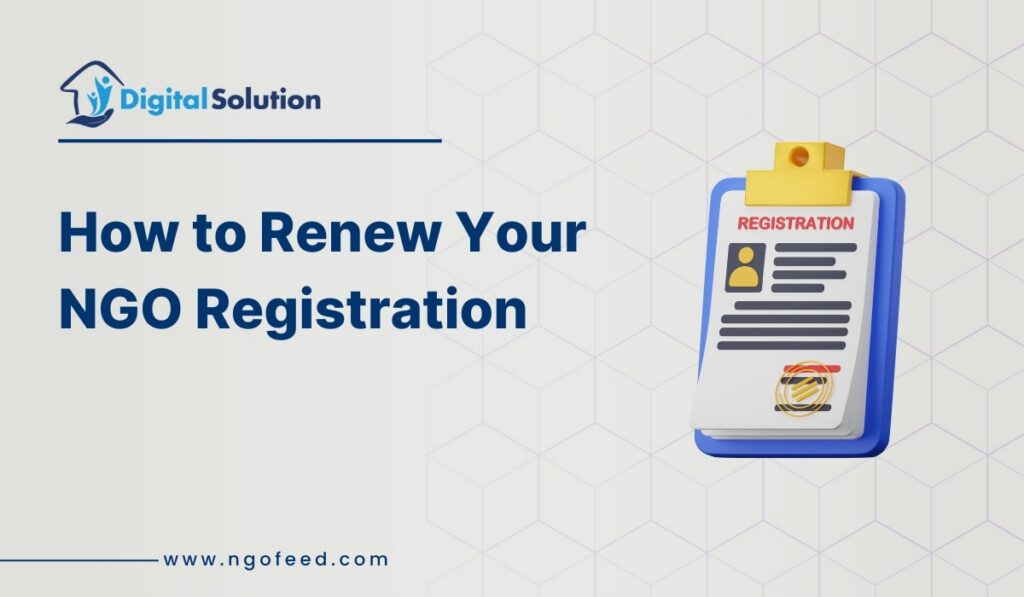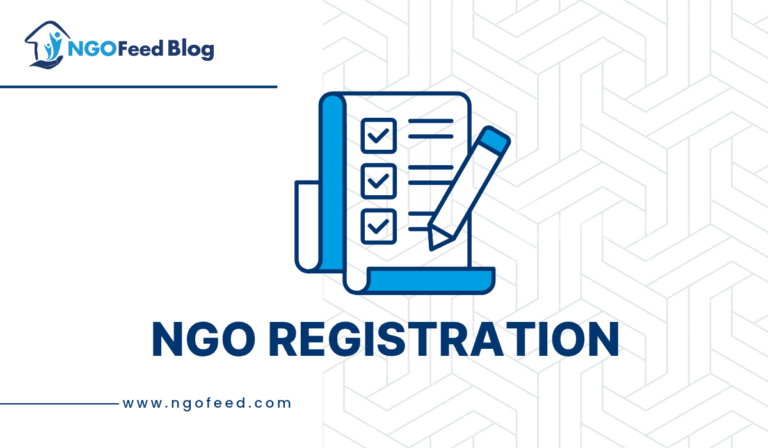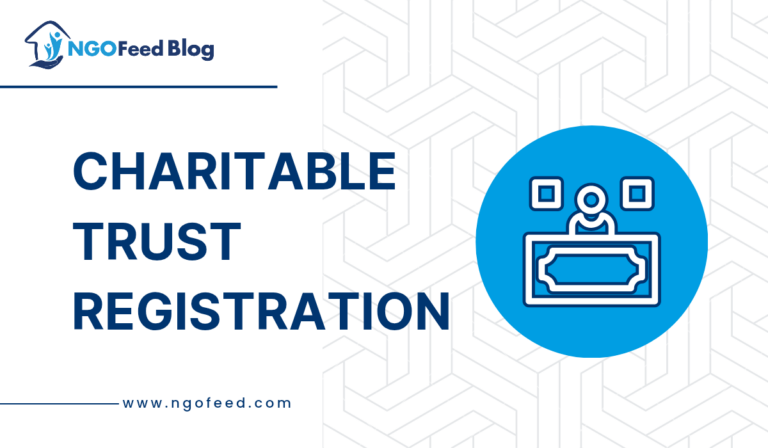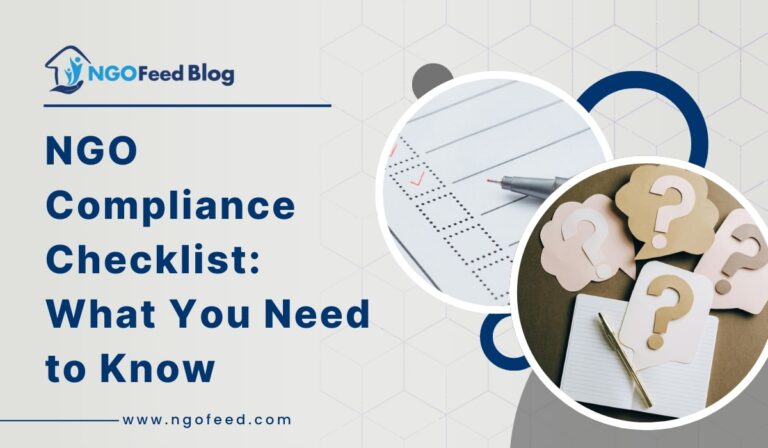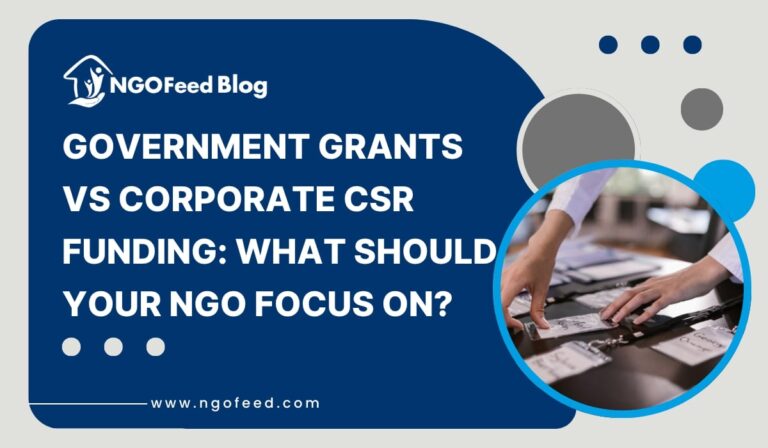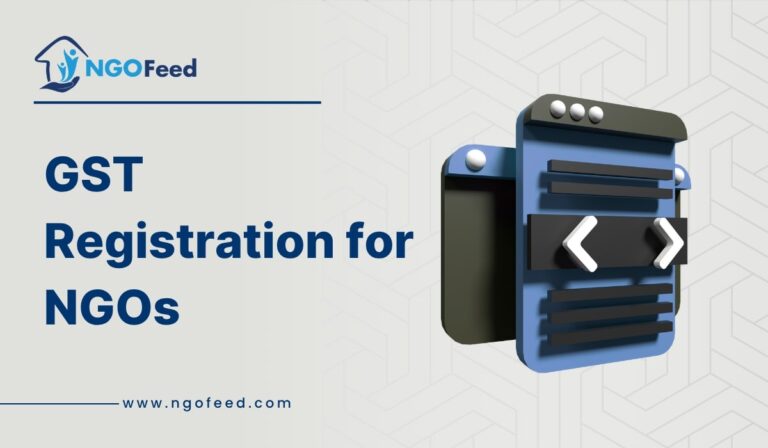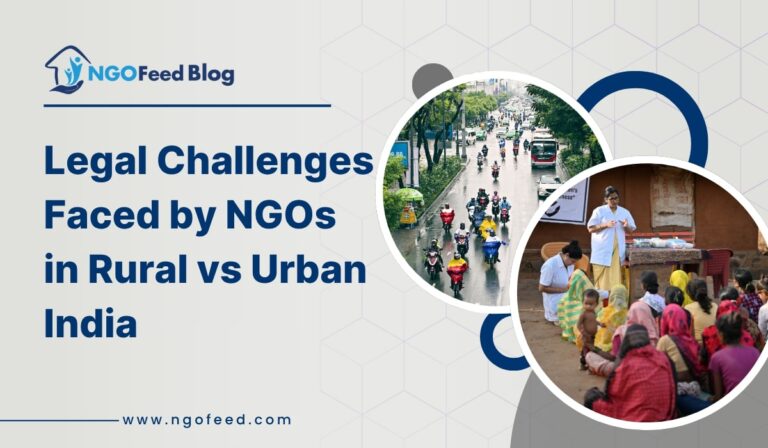How to Renew Your NGO Registration: Renewing an NGO registration in India is a mandatory legal requirement to keep your organization compliant, eligible for government benefits, and authorized to continue social work. Whether you are a Trust, Society, or Section 8 Company, renewal ensures your NGO remains valid under Indian law and is eligible for various approvals such as 80G, 12A, CSR funds, and government schemes.
This comprehensive guide explains how to renew your NGO registration, documents required, step-by-step process, timelines, state-wise renewal rules, common mistakes to avoid, and the updated renewal procedure for based on recent regulatory changes and competitor insights.
This article includes important keyword clusters such as: NGO renewal process, documents for NGO renewal, NGO registration renewal India, online NGO renewal, society renewal, trust renewal, NGO Darpan update, renewal fees, state-wise NGO renewal requirements, and more.
Table of Contents
What Is NGO Registration Renewal?
NGO registration renewal is the legal procedure of extending the validity of an organization registered as:
- Society (under Societies Registration Act, 1860 or State Amendment Acts)
- Trust (under Indian Trusts Act or State Act)
- Section 8 Company (under Companies Act, 2013)
Most states in India require periodic renewal (every 5 years, 3 years, or annual). For Section 8 companies, compliance is annual. Renewing registration ensures:
✔ Your NGO stays legally active
✔ Validity for grants, CSR, and foreign/domestic funding
✔ Eligibility for government schemes
✔ Avoiding penalties or cancellationCompetitors like NationalTrust, NGO Darpan, and NoBrokerhood highlight these legal and compliance requirements prominently — we will go beyond them with detailed updates.
NGO Renewal’s Standard Requirements
Although every state adheres to its own legislative system, most Indian NGOs must make sure the following papers and procedures are in line before seeking
Needed papers
- A copy of the regulating document (Memorandum of Association, Trust Deed, or Incorporation Certificate) as well as the original Registration Certificate.
- Management committee members or list of current office bearers.
- Past three financial years audited financial statements.
- Annual reports highlighting NGO operations.
- Handle proof of the registered office.
- NGO PAN card and board members’ Aadhaar cards.
- Receipt of the renewal fee payment as per state requirements.
Also Read: NGO Compliance Checklist: What You Need to Know
Standard Renewal Procedure
- Determine if your registration needs renewing—some states mandate every 1–5 years—
- Set up documents, update audits and yearly returns.
- Apply online or offline via the relevant Registrar of Societies or Charity Commissioner’s Office.
- Submit Renewal Attach necessary papers and pay specified charges for application and fee.
- Verification and Approval: The authority checks records and sends a fresh certificate of registration.
- Update NGO database: Represent the changed level on your website and with funding partners.
Who Needs to Renew NGO Registration?
Renewal applies to NGOs registered as:
| NGO Type | Renewal Requirement |
| Society | Mandatory every 3–5 years (varies by state) |
| Trust | Some states require renewal; others require compliance update |
| Section 8 Company | Does not need “renewal” but must file yearly compliance (AOC-4, MGT-7) |
This article mainly focuses on societies and trusts, as they require official renewal.
Documents Required for NGO Registration Renewal
Competitor sites highlight basic documents. Here we provide complete checklist:
Mandatory Documents
- Registration Certificate (original + copy)
- Memorandum of Association (MoA) / Trust Deed
- Updated List of Members / Trustees
- Identity Proofs of governing body
- Address proof of NGO office
- Minutes of last Annual General Meeting (AGM)
- Annual Reports (last 3 years)
- Audited Financial Statements
- Activity Report of NGO
- Renewal Application Form (varies by state)
- Passport-sized photos of members
- PAN of NGO
- Updated Mobile Number & Email ID
Additional State-Required Documents
- Executive Committee resolution for renewal
- Utilization certificate
- Compliance affidavit
- Updated Rules & Regulations, if amended
For NGOs registered on Government Portals
- NGO Darpan Unique ID renewal
- NITI Aayog updates
- State NGO portal verification
Legal Basis for NGO Renewal in India
Many competitors skip this section — but this is essential for “E-E-A-T authority.
NGO renewal is governed by:
For Societies
- Societies Registration Act, 1860
- State-specific Society Registration Acts
- Registrar of Societies (RoS) regulations
For Trusts
- Indian Trusts Act, 1882
- Bombay Public Trusts Act (for Maharashtra & Gujarat)
- State Endowment/Charity Commissioner rules
Also Read: NGO Registration for Religious or Spiritual Purposes: Rules and Restrictions
For Section 8 Companies
- Companies Act, 2013
- MCA Compliance
This ensures your blog ranks for legal-intent keywords competitors use.
Step-by-Step Guide: How to Renew Your NGO Registration in India
Step 1: Check Your NGO’s Renewal Due Date
Before starting, confirm:
✔ Validity period of your registration
✔ Last renewal date
✔ State requirement (3 years / 5 years)
Failing to renew on time can lead to:
⚠ Late fees
⚠ Cancellation
⚠ Loss of eligibility for 12A/80G
Step 2: Collect All Required Documents
Use the comprehensive document list above.
Incomplete documents = delays in renewal.
Step 3: Update Governing Body Details
Registrar requires:
✔ Updated member list
✔ Resignations or newly added members
✔ Address changes
Most NGOs forget this step — causing rejection.
Step 4: Prepare Mandatory Annual Compliance
This includes:
- Audit reports
- Activity reports
- Meeting minutes
- Financial statements
Competitors mention these briefly — this guide gives complete detail.
Step 5: Fill the NGO Renewal Application Form
Each state has a designated renewal form.
Ensure:
✔ Correct details
✔ Correct signatures
✔ Board resolution attached
Also Read: Society Registration Process in India
Step 6: Submit Application Online or Offline
A) Online Renewal (Most States)
Available on portals like:
- NGO Darpan
- State Registration Portal
- e-Governance Registrar Portal
- Charity Commissioner portal
B) Offline Submission
Submit at:
- Registrar of Societies office
- Charity Commissioner office
- District Collectorate
Offline processing takes longer.
Step 7: Pay the Renewal Fees
Fees differ state-to-state (₹100 to ₹5,000 usually).
Fee Receipt = mandatory for approval.
Step 8: Verification by Registrar
Registrar/Charity Commissioner verifies:
✔ Documents
✔ Compliance
✔ NGO activity legitimacy
Some states conduct physical inspection.
Step 9: Receive Renewal Certificate
Once approved, you get:
📄 Renewal Certificate
📄 Updated Society Registration number
📄 Validity extension for next term
Keep digital + physical copies safe.
State-Based NGO Renewal Guidelines
A. Delhi
- Registered under the Societies Registration Act, 1860, as pertinent to Delhi.
- Renewal Normally permanent; only annual report and membership list needed.
- Authority: Registrar of Societies Delhi.
- Filing Form VI yearly with a list of governing body members is the main requirement.
- Portal:https://services.india.gov.in
B. Maharashtra
- Registered beneath the Bombay Public Trusts Act, 1950.
- No set renewal: NGOs must submit Form IX and Schedule IX-C yearly accompanied by audited financial records.
- Authority: Commissioner of Maharashtra.
- Critical Need: Prompt delivery of change reports and financial audits.
- Portal:https://charity.maharashtra.gov.in
Also Read: Government Grants vs Corporate CSR Funding: What Should Your NGO Focus On?
C. Tamil Nadu
- Registered under Tamil Nadu Societies Registration Act, 1975.
- Renewal Frequency: every five years.
- Authority: Tamil Nadu’s District Registrar for Societies.
- Documents Required: recent audited statement, annual report, identification proof, and executive members list.
- Delayed penalty: late fee applies if renewal not completed on time.
- Portal: https://tnreginet.gov.in
D. Karnataka
- Registered under: Karnataka Societies Registration Act, 1960.
- Renewal Frequency: Every 5 years.
- Authority: Registrar of Societies, Karnataka.
- Documents Required: Updated members list, audit reports, and activity statements.
- Note: Missing renewal can lead to cancellation of registration.
- Portal: https://ksg.gov.in
E. West Bengal
- Registered under: West Bengal Societies Registration Act, 1961 (Amended 2017).
- Renewal Frequency: Annually.
- Authority: Registrar of Societies, West Bengal.
- Documents Required: Annual return, audited financials, activity report, and governing body list.
- Penalty: Late filing attracts fines or temporary suspension.
- Portal: https://wbregistration.gov.in
F. Uttar Pradesh
- Registered under: Societies Registration Act, 1860 (as amended by UP Act No. 52 of 1975).
- Renewal Frequency: Every 5 years.
- Authority: Deputy Registrar, Firms, Societies & Chits, Uttar Pradesh.
- Process: Submit renewal form with fee, annual report, and audited accounts.
- Portal: https://igrsup.gov.in
Also Read: GST Registration for NGOs
G. Bihar
- Registered under: Societies Registration Act, 1860 (Bihar Amendment).
- Renewal Frequency: Every 5 years.
- Authority: Inspector General of Registration, Bihar.
- Documents Required: Audit report, governing body list, and resolution of renewal.
- Portal: https://state.bihar.gov.in/registration
H. Gujarat
- Registered under: Bombay Public Trust Act (as applicable in Gujarat).
- Renewal Frequency: No renewal needed for trusts; only annual filing.
- Authority: Charity Commissioner, Gujarat.
- Portal: https://charitycommissioner.gujarat.gov.in
I. Andhra Pradesh & Telangana
- Registered under: Societies Registration Act, 2001.
- Renewal Frequency: Every 5 years.
- Authority: Registrar of Societies (District).
- Documents Required: Audit report, member list, and annual returns.
- Portal: https://registration.ap.gov.in
J. Kerala
- Registered under: Travancore-Cochin Literary, Scientific and Charitable Societies Registration Act, 1955.
- Renewal Frequency: Every 5 years.
- Authority: Registrar of Societies, Kerala.
- Portal: https://www.keralaregistration.gov.in
3. Additional Renewal Obligations for NGOs
Besides state registration, NGOs often require renewal or revalidation of other statutory certifications:
Also Read: Legal Challenges Faced by NGOs in Rural vs Urban India
| Certificate Type | Renewal Frequency | Authority | Key Portal |
|---|---|---|---|
| FCRA Registration | Every 5 years | Ministry of Home Affairs | https://fcraonline.nic.in |
| 12A/12AB & 80G Tax Exemption | Every 5 years | Income Tax Department | https://www.incometax.gov.in |
| CSR Registration (Form CSR-1) | As required | Ministry of Corporate Affairs | https://www.mca.gov.in |
4. Common Challenges in NGO Renewal
- Records Mistakes: Incomplete records or name mismatches may delay approval.
- Non-compliance history: Rejection results from missed annual filings or audits.
- Many non-governmental organizations are ignorant of renewal deadlines.
- State portals occasionally have downtime, which slows down the process.
- Uneven Rules: Different states have varying protocols and deadlines.
5. Best NGOs Policies
- Keep a compliance calendar for all renewal dates.
- Conduct yearly internal audits.
- Hold soft copies of all papers registering and filings.
- For renewals, get a professional (CA or legal consultant).
- With the registrar, often update the official NGO email address.
Conclusion
Renewing NGO registration is not just a paperwork requirement; it’s a pledge to legal integrity, accountability, and openness. By adhering to state legislation and central rules like FCRA and 12A/80G, NGOs safeguard their reputation, guarantee funding eligibility, and build donor trust. A proactive approach to renewal helps to protect both the long-term viability of the company and its mission.
Also Read: FCRA Registration vs Non FCRA NGOs: Pros & Cons
Renewal Fees for NGO Registration in India
Fees vary widely by region.
Average fee range: ₹500 – ₹5,000 (Depending on state and NGO category)
Additional charges may include:
- Late fee
- Penalty for non-compliance
- Document update fee
Common Mistakes to Avoid During NGO Renewal
Competitors do not highlight this — this is a ranking booster.
❌ Not updating governing body
❌ Not maintaining audit reports
❌ Incorrect MoA / Trust Deed details
❌ Using expired ID proofs
❌ Missing fee receipt
❌ Not updating NGO Darpan
❌ Wrong signatures on forms
Avoid these mistakes to ensure smooth renewal.
Also Read: How to Start an NGO in India: Step by Step Guide
Post-Renewal Compliance Checklist
After renewal, complete:
✔ Update certificate on NGO Darpan
✔ Update bank records
✔ Update PAN, Aadhaar linkage
✔ Update new governing body on portals
✔ File annual compliance
✔ Maintain accounts for next auditThis section captures keywords like post renewal compliance NGO.
Benefits of Renewing NGO Registration
To rank for “benefits of NGO renewal”:
- Legal recognition
- Eligibility for government grants
- Eligibility for CSR funding
- Continued tax exemption (12A, 80G)
- Higher donor trust
- Compliance credibility
Frequently Asked Questions (FAQs)
1. Is NGO renewal mandatory in every state?
No, it varies. Some states require periodic renewal (every 1–5 years), while others only require annual filings.
2. What happens if an NGO misses its renewal deadline?
It may lose legal status, funding eligibility, or be required to re-register as a new entity.
3. Can NGO renewal be done online?
Yes, most states now provide online portals for renewal and annual compliance.
4. Is FCRA renewal different from state registration renewal?
Yes. FCRA is a central law for foreign contributions, while state registration renewal pertains to legal recognition within a state.
5. Who can help with NGO renewal?
Chartered Accountants, NGO consultants, and legal advisors specializing in non-profit compliance can assist with the process.
6. Is renewal same for Trust, Society, and Section 8?
No. Section 8 companies have annual compliance instead of renewal.
7. Is NGO Darpan renewal required?
Yes, updating details is mandatory for grants and schemes.
8. Can NGO renewal be done online?
Yes, most states allow online renewal through official portals.

